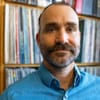Philosophers, Punks, & Reluctant Poets
Punk and philosophy both begin in creative refusal: in the refusal to accept inherited answers, in the impulse to question what passes for normal, and in the drive to make meaning where none is guaranteed.
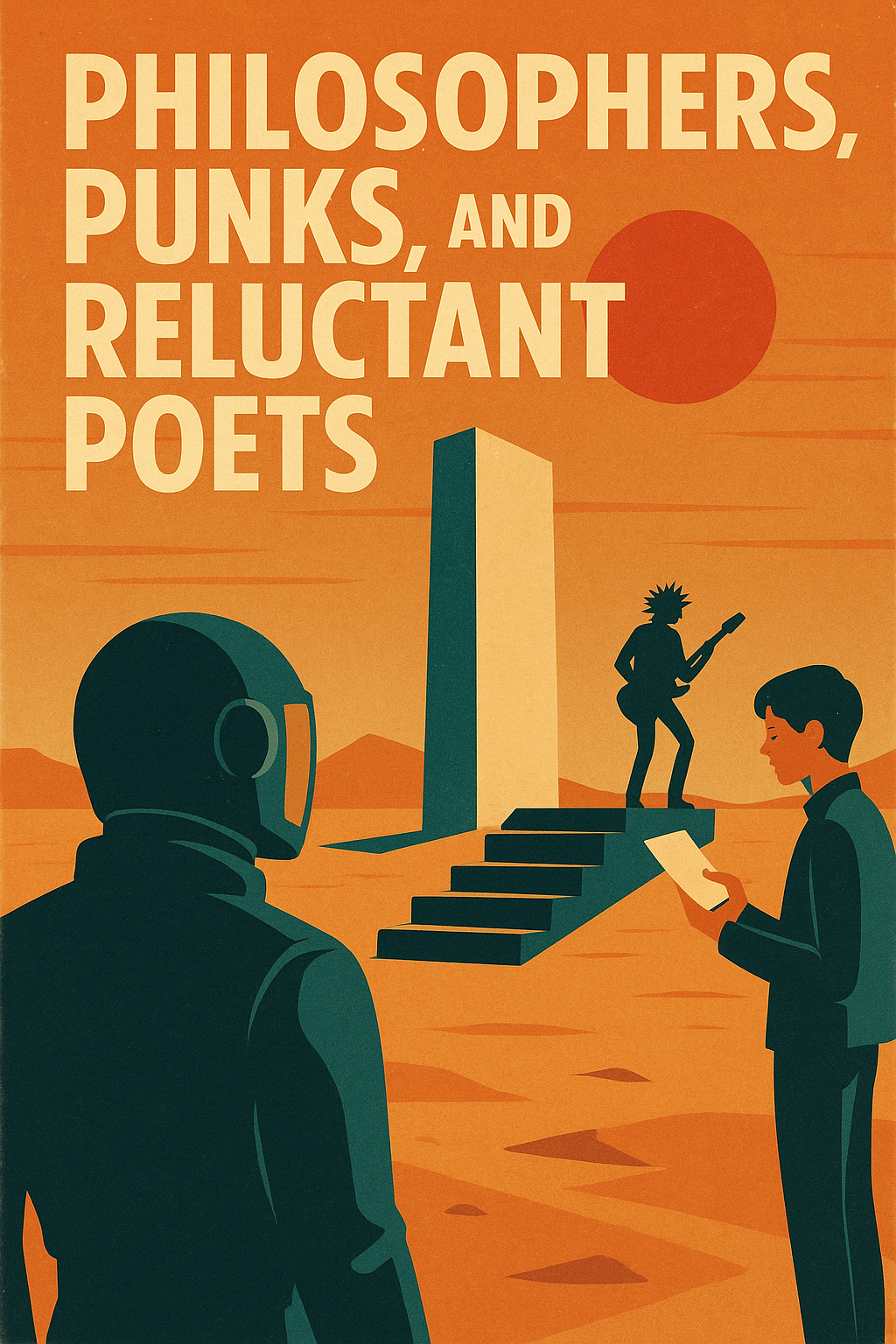
This week I share a few quick research updates and then some reflections on the connection between philosophy and punk. I also tell some stories of my experience playing punk and studying philosophy in Paris. I have a new post on Heidegger up my sleeve for next time.
Updates
Topos Institute
I've been busy lately exploring my new role as philosopher in residence at Topos Institute in Berkeley. In addition to my recent blog post and colloquium talk for Topos (please check them out if you haven't!), I've been enjoying getting to know my colleagues there, learning about their research, and beginning to articulate with them the importance of including philosophical reflection as part of the mission of their work to create technologies for social good and collective sense-making. I can't wait to share more about this when the time comes.
Curiosity Craft
As mentioned, I have recently launched a new project with my friend and colleague Massimo Scapini, called Curiosity Craft. Our mission is to help parents (and other elders) help kids have a positive relationship with AI, to develop skills and habits for using AI to deepen curiosity and engagement with the world, rather than withdraw from it, creating communities where both parents and children can reclaim wonder as a way of being. Massimo and I are offering a webinar next week to give an overview of this project. Join us! If this might be of interest to anyone else in your life, please share it with them too.
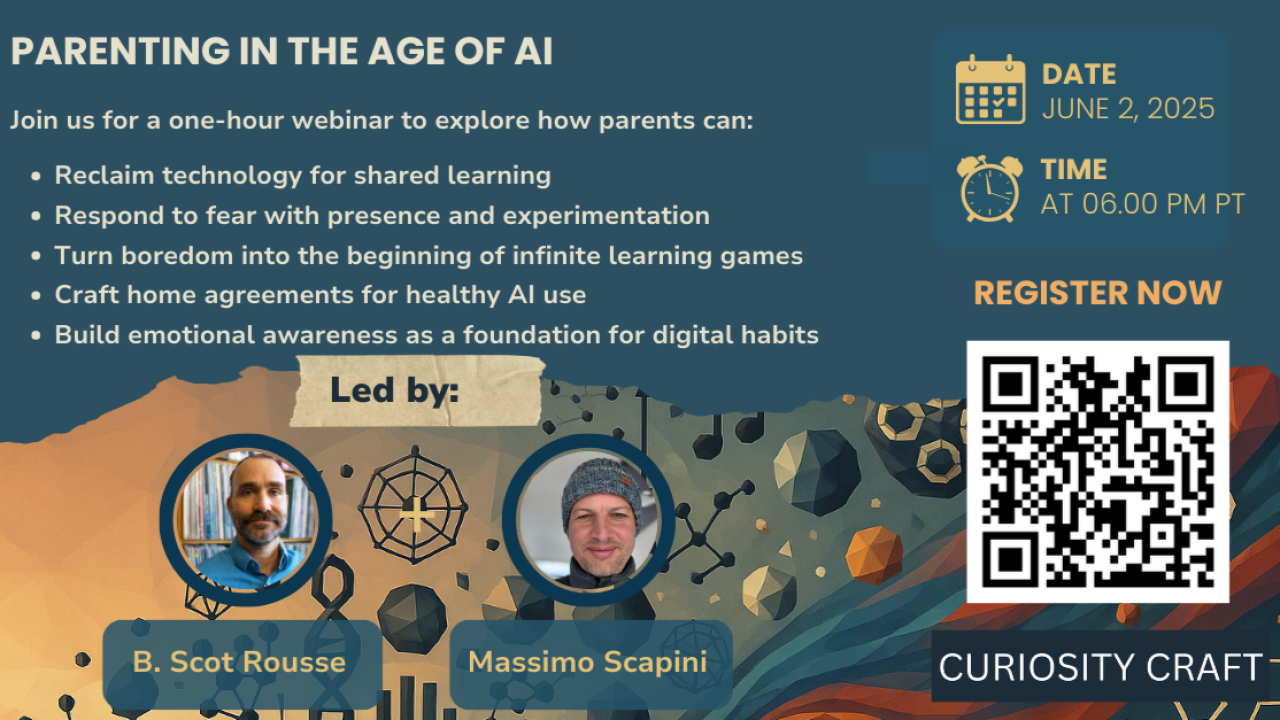
Philosophy and Truth-Seeking AI with the Cosmos Institute
I will be spending the next week at a workshop on Truth-Seeking AI being put on by the Cosmos Institute at Edge Esmeralda in Healdsburg, CA. I was delighted to be awarded a scholarship from Cosmos to cover my tuition for the workshop, and I'm really looking forward to meeting more of their community of "philosopher-builders" and learning more first hand about their aspiration to "translate philosophy into code." This is also how I understand much of my role at Topos Institute. It is so encouraging to see more of these essential conversations starting to happen.
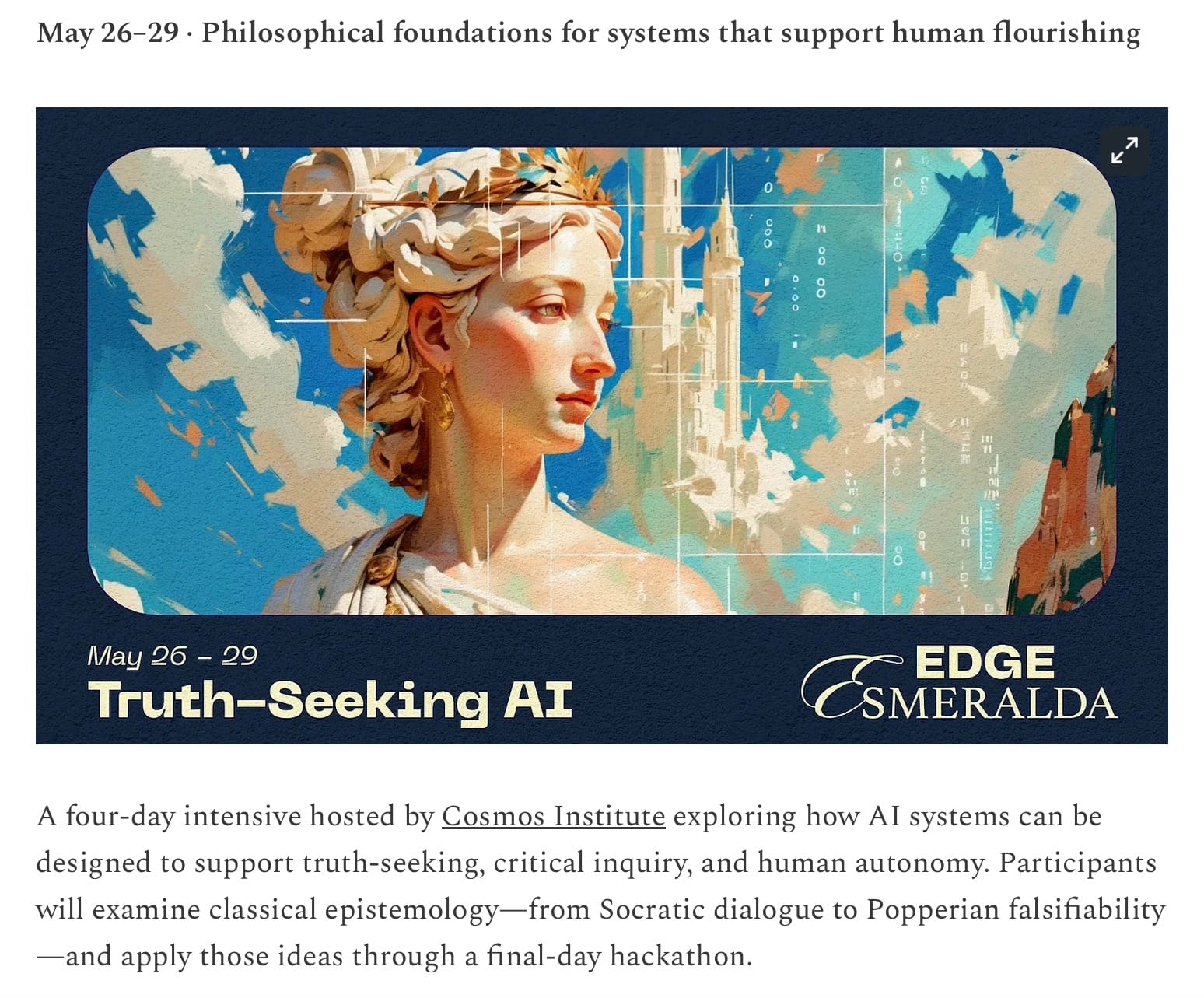
Punk
Last night I played a fantastic and life-affirming punk show in Sacramento with my new band, Realistic. All of the bands were superb, the sense of community was so very strong, and it was one of those moments when I could viscerally grasp why I've kept involved in these rituals for the past three decades.
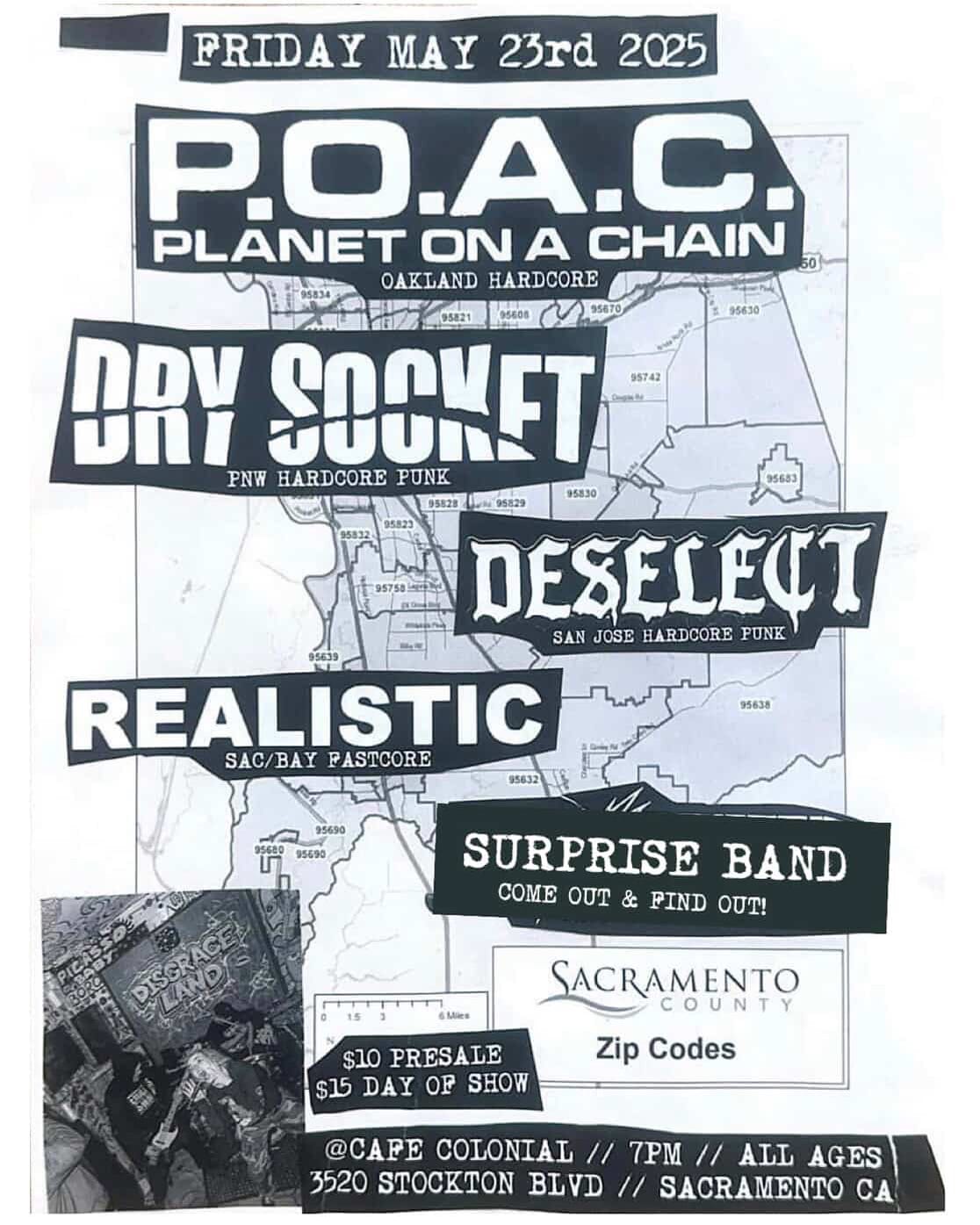
Here is a little, cacophonous clip of me drumming with Realistic:
Reflections on Punk and Philosophy
Philosophy? What are you going to do with that?
When someone discovers you study philosophy, they are usually compelled to ask you the question, "What are you going to do with that?"
Well, this is the question they ask you in the US, anyway. Here in the States our common sense is imbued with an impulsive, no nonsense, pragmatism. We have a standing urge to make a buck and a general disregard for pompous old-timey traditions. Many of us think reading and thinking are a waste of time. For example, take 13-year-old Scot Rousse, of Valrico, Florida, who accidentally won a poetry contest.
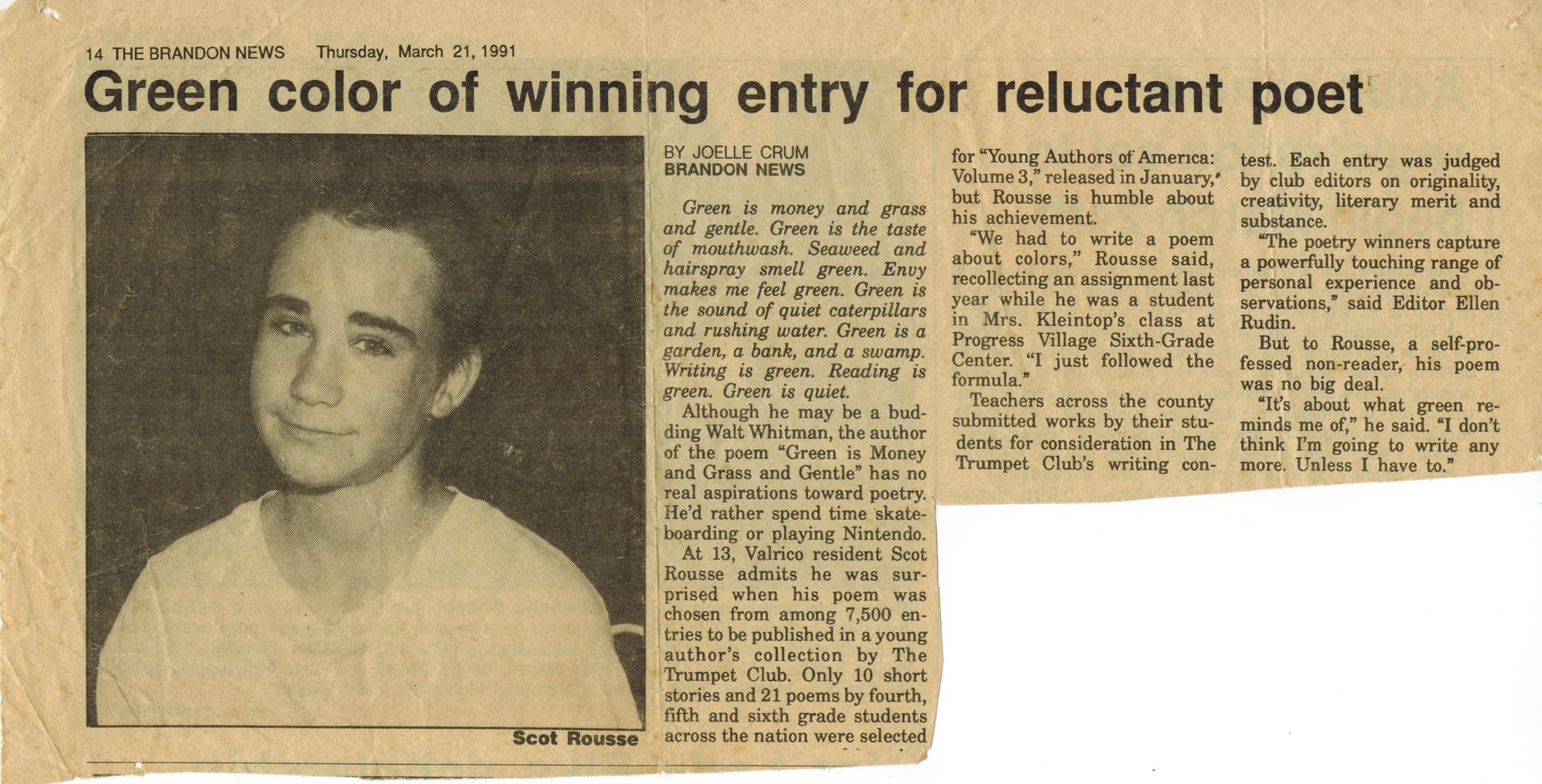
Strangely, I seem to have neglected to mention to the author of this piece that I was already playing shows with my first punk band at this point in my life, not just skateboarding and playing Nintendo. Later in that same year, 1991, my band, U.R.N., recorded our first demo. I was the vocalist of U.R.N. But early the following year I started playing drums. By 1993, at the age of 15, I was drumming in my first serious punk band, The End of the Century Party.
I love how that certain, no-nonsense American pragmatism comes through in the closing comments of the piece.
"But to Rousse, a self-professed non-reader, his poem was no big deal. 'It's about what green reminds me of. I don't think I'm going write any more. Unless I have to.'"
It was just about 5 years later that I discovered I actually did have to read and write, and I haven't stopped. Nor have I stopped playing in punk bands. I fell in love with philosophy as a freshman in a course called "The Acquisition of Knowledge." It was the first-semester requirement for the honors program at the University of South Florida (USF) in Tampa, where I studied for the first two years of college.
Philosophy lit up the world for me. It was exhilarating to grasp and grapple with all of these divergent and contradictory interpretations of the nature of reality and of being human. Philosophy revealed existence as the strange adventure it is, opening up a tantalizing plurality of meanings.
In the beginning of my second year of college, I was attending the office hours of the awesome professor of my environmental ethics class, Kristin Shrader-Frechette. At one point, she interrupted me to ask me her own question: "What are you doing here? You need to get out of here. You need to go to Berkeley."
Professor Shrader-Frechette, now at the University of Notre Dame, thus wrote me a letter of recommendation and helped with the personal statement for my transfer student application. "You don't want to sound too crazy," she said, advising to tone down my articulation of how growing up in poverty put me in touch with the consoling and liberating powers of thought.
Getting into Berkeley as a transfer student, and enrolling in Hubert Dreyfus's course on Heidegger's Being and Time in my first semester there put me on the path to getting a PhD in philosophy and becoming a Heidegger scholar myself.
Philosophy in Paris
One of the best parts about studying for a PhD in philosophy is that it gives you a reason to go study and live abroad in other countries. A few years into my graduate studies, I hit upon a winning streak of grants and fellowships that funded three years of research and language studies in Paris, Berlin, and Frankfurt am Main.
During a sensuous year in Paris, I attended philosophy seminars at my professor's apartment, frequented the many museums and the incredible Bibliothèque Nationale de France, and took an intensive French language course at the Sorbonne.
The instructor of my French class was genuinely scandalized by the amount of slang verlan that I used in my final exam. "You cannot do this! This is La Sorbonne! You must write properly!"
I built up my knowledge of Parisian slang through hours of philosophical research conducted in cafes, bars, old movie theatres, fashion week after parties, and at the rehearsals and performances of the two punk bands I drummed in while living there.
I carved the Parisian social ice with my crude and jagged French, each syllable painstakingly pronounced:
Je –fai – mes – études – en– la – phi – la – sophie – J'ecris – mon – doctorat – sur – la – quest – ion – de – l'inter – pré – tation – de – soi - che – zHei – de – gger.
"I'm studying philosophy; I write my doctoral dissertation on the question of self-interpretation in Heidegger."
My unapologetically brash American accent brought me both sympathy and ridicule, but in each case it opened a conversation, especially given mention of philosophy.
"You study philosophy? Oh really?! What are you interested in? Who are you reading?" The question of what I was going "to do" with philosophy never came up.
Philosophy and Punk
I've been studying philosophy almost as long as I've been playing in punk bands now. Punk and philosophy converge in me, and in themselves.
Both punk and philosophy arise from a rejection of accepted norms and centralized authority. Punks and philosophers refuse to accept our given reality at face value. They both discern the questions and contingencies lurking behind every settled certainty and authoritative pronouncement.
They both refuse to put on the blinders of the everyday grind where they see most people just getting by, day to day, working a job to be able to pay rent, so that they can keep a job so that they can pay rent; while many other people are caught in an empty game of seeking status, wealth, and power for their own sake, without questioning why things are as they are, or what even matters in the first place.
Punks and philosophers find joy in self-organized activities that mainstream commonsense finds useless, playing unlistenable music in a sweaty little room with friends, and engaging in endless conversations about the nature of reality. We do these things because they bring us joy; we care about them for their own sake, not because they further some other goal.
Passionately undertaking their activities, and tending to the communities that support them, gives punks and philosophers a basic stand and orientation in life. They have a sense of direction, a sense of what makes life worth living, a connection to something bigger than themselves, a breath of the infinite.
In both cases, punks and philosophers create little bubbles of shared belonging in which to shelter from the unforgiving daily grind of the mainstream world. Music, community, thought, and conversation are vehicles of temporary transcendence, capable of momentarily redeeming life's turmoil, openings for different possible ways of being and living together.
Punk and philosophy, when done well, each hold open worlds that remain stubbornly outside technological imperatives to optimize life. Their ways of gathering, creating, and thinking aren't about control, efficiency, or solving problems, but about keeping a space open for meaningful freedom and care.
Both punk and philosophy are also in constant anxiety about what they even are in the first place. What really counts as punk? What is philosophy? What are we even doing? To be a punk, or philosopher, is for punk (or philosophy) to be an issue for you. Each mode of activity is inherently unstable.
Further, both punks and philosophers suffer from the 3 Ruinous R's: Resentment, Resignation, and Righteousness.
Resentment – A deep-seated antagonism toward mainstream society and its ways. This manifests as a kind of moral inversion where punks and philosophers define themselves against the "normies" and take pride in their outsider status, elevating themselves morally as somehow "better" than everyone else. This resentment, while energizing, can become a prison that prevents growth and locks people in a perpetual stance of opposition and bitterness rather than creation.
Resignation – The fatalistic acceptance that the world is broken beyond repair and the best we can do is retreat to our little "bubbles of belonging," in the seminar room, or the punk venue.
Righteousness – A self-satisfied moral superiority about being more "real" or less conformist than mainstream society. This righteousness can become dogmatic, creating its own forms of conformity within punk and philosophy scenes and turning their liberating energies into yet other forms of social policing.
Punk in Paris
I drummed in two punk bands while living in Paris. The first, Blutschwester, consisted of me along with three bad ass women. The name means "Blood Sister" in German. Our vocalist was a fashion designer originally from Austria. She sang our songs in English, French, and German. The name of our best song was "Go Fuck the Bitch."
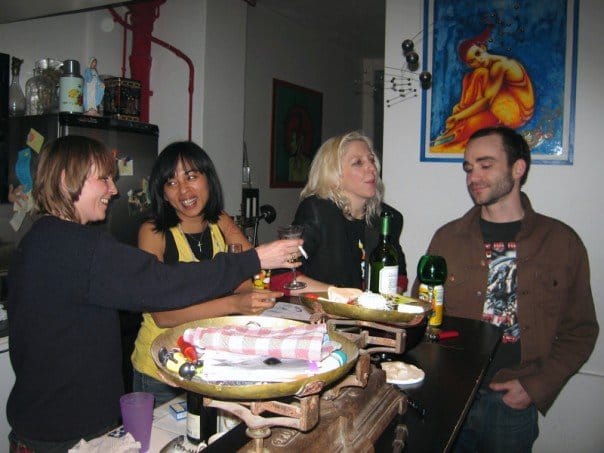
We recorded a scrappy 5-song demo in the studio in Belleville where we practiced. The recording has been lost to the ruination of the long-forgotten and rightly-ridiculed Myspace Music. We also played a handful of live shows in Paris and one in Amsterdam. Here's the flyer for a fashion-week show we played in Paris in January of 2007.
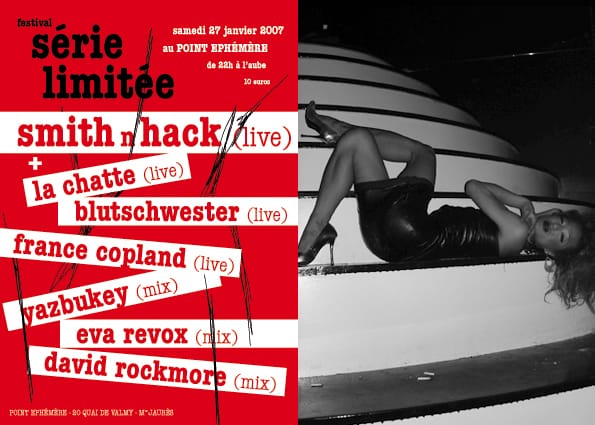
A second band I drummed in while in Paris was called Regis Jauffret and His Ghost Writers (in French, this name has an offensive double-meaning that I do not stand by). It was a literary-post-punk project backing the author Régis Jauffret.
Régis tore pages from his then-recent book, Microfictions, as he set the words to the occasionally catchy but mostly abrasive, repetitive, and confrontational punk songs we wrote. This band played live only twice.
Our first show was in Toulouse, in June 2007, as part of a city-wide literary festival called Le Marathon des Mots (Marathon of Words). We drank champagne with the mayor in the opening ceremony, had breakfast in the "artist tent" each day, and attended parties and readings all over this city appropriately celebrated for being steeped in the pink hues of its ubiquitous terracotta bricks.
For our performance, we played a full 40m set in the Petite Salle of the National Theatre of Toulouse (a dark, steep auditorium of about 250 seats). At the end our set, we emerged from the discordant remnants of a song crassly entitled "Les Pères sont des Enculés" (roughly, fathers are fucked) and broke into a bleak and depleting number called "The Cowardice of Heroes" (La Lâcheté des Héros).
Our construction of this last song was calculated to produce the grinding annoyance (or perhaps absurd joy) of finding oneself trapped in a refined theatre, during an otherwise quiet literary festival, drenched in the relentless noise of a mutinous punk band fronted by an author you used to like, screaming his head off in your general direction.
For the song's outro, the guitar, bass, and drums cycled through an unpolished, driving riff, pounding it into the ground. Régis yelled, "La lâcheté! La lâcheté! La lâcheté!" ("The cowardice! The cowardice! The cowardice!") over and over and over and over again. Some in the crowd laughed nervously. Others grimaced and plugged their ears. Many left the room.
The second performance of Regis Jauffret and His Ghost Writers happened on live TV. We played a vulgar and jagged love song called "Petite Salope," appearing as the musical guests on a highbrow evening talk show called Ce Soir ou Jamais ("Tonight or Never"). This was on April 22, 2008.
As our accompanying crew of friends laughed and drank flutes of champagne from the shadowy recesses of the flashy studio, our performance was broadcast on TV and relayed into the reluctant eyes and ears of the show's roundtable guests. These included François Hollande (who would soon thereafter become President of France), Didier Eribon (whose biography of Michel Foucault I read while in grad school), and Emmanuel Todd (whose latest book, La Défaite de l'Occident, i.e., The Defeat of the West, was recently recommended to me by Fernando Flores).
For unknown but intuitable reasons, our performance seems to have been scrubbed from the internet. However, I managed to make a screen recording of it. I found a grainy low-resolution copy of the video lingering as a forgotten remnant on an old friend's Facebook page.
The look of palpable discomfort on the face of Francois Hollande cracks me up every time I watch this clip. It is indeed an absurd performance we are imposing upon him. But philosophy and punk, when done well, should every now and then force us to ask the questions about why things are as they are, what should matter to us here and now, what does our common sense prevent us from seeing, and why is this person yelling in my face?
Next week I’ll be back with a fresh Heidegger post. In the future, I have more to share about "the saving power" of punk and its relation to philosophy. Some of this post was drawn from my draft manuscript, "Punk and Nihilism," presented a few months ago at the American Society for Existential Phenomenology meeting in Bombay Beach. It is part of a large project about how to be human in the age of AI.
What did you hear in these stories?
Join the Conversation
Your support makes Without Why possible. If you upgrade to a paid subscription for as low as $8 per month you gain the opportunity to post and reply to comments on these pages, and to join a growing community of conversation here. Sign up today!
